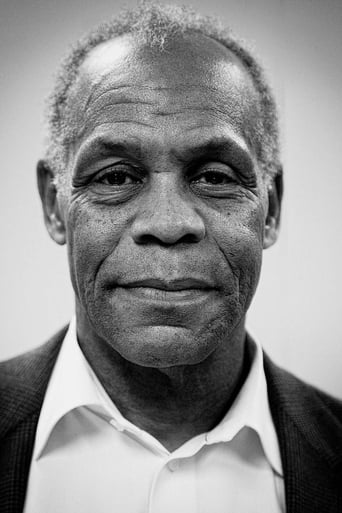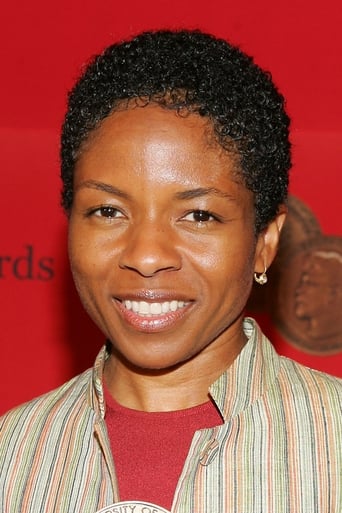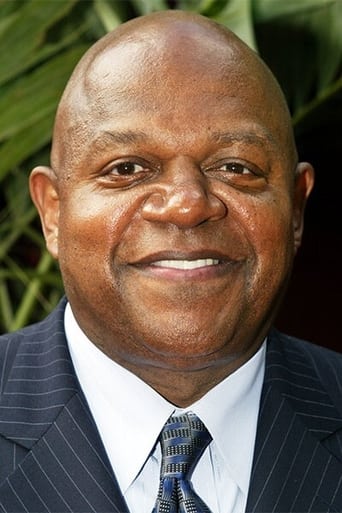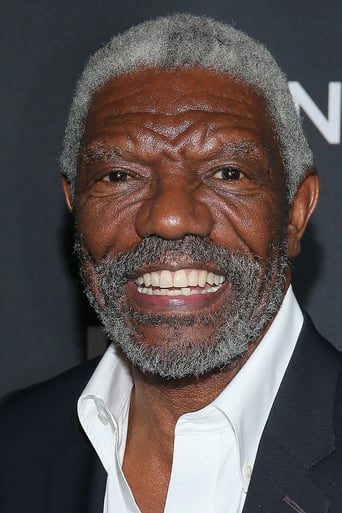Blucher
One of the worst movies I've ever seen
Teringer
An Exercise In Nonsense
FirstWitch
A movie that not only functions as a solid scarefest but a razor-sharp satire.
Calum Hutton
It's a good bad... and worth a popcorn matinée. While it's easy to lament what could have been...
vchimpanzee
It is 1950 and this is Alabama. Black people are not treated particularly well, though this film comes nowhere near depicting just how bad things are. Two boys aspire to be musicians and pretend at their modest shack, then they cross the nearby military base to get a glimpse of what is going on at Honeydripper, a place where black people go to listen to music.Pianist Tyrone "Pinetop" Purvis runs the place. For some reason he doesn't want Bertha Mae, as good as she is, to continue singing. No, the place is in financial trouble and the only way to save it is to bring in a celebrity named Guitar Sam. So is this guy who gets off the train and carries a guitar in fact the famous man himself? Hardly. And Sonny is advised by the fantastic and friendly blind dobro player that he is on the wrong side of town. And while the guitar player finds Honeydripper, Pinetops isn't interested in him. He's got a guitar player (or thinks he does; Sam is never seen but the word is that he is in the hospital in Little Rock). Sonny heads down the road looking for work. We've already seen the prisoners sentenced to pick cotton. And he becomes one of them because racist Sheriff Pugh (he treats the movie's stars relatively well, though) catches him wandering down the road. He claims to be looking for work, but that just makes him a vagrant.Pinetops, meanwhile, faces one obstacle after another. He lost his star. He and Maceo have to come up with a plan. While they do, they have to come up with one humorous con game after another. Sonny knows Guitar Sam's music. So if they can get the sheriff to let him go, no one has to know he isn't Guitar Sam. Delilah, a great cook, promises the sheriff her fried chicken. China Doll wants to go to beauty school and makes the man look good. Will it all work?Let me put it this way: There's good rockin' tonight! Yes, I said rock. Five years before white people discovered rock and roll, these people were doing it and doing it quite well. There are outstanding performances from just about everyone. Danny Glover has some scenes that I wouldn't be surprised to see as Oscar clips. Charles Dutton does his usual fine work and makes us laugh. Stacy Keach also does great work. Mary Steenburgen has a good scene as the employer of one of the black women. Keb Mo' gives what may the best performance of all, and not just as an actor. He can play that dobro! The musicians are very talented, particularly Gary Clark.Even those young boys give good performances, however brief. You have to watch them again at the end, after their pretend musical instruments have improved. It's an outstanding effort you just have to see.
les6969
This film has it's moments and there is a lot going on. It is an incite into early Rock and Roll and the fact that it was black singers and musicians and not Elvis who started it all off. It shows the racism and corrupt attitudes of the deep south and there is a little love interest. Danny Glover is outstanding as is Stacey Keech but all the support roles are also really well done. My only criticism about this film is that it doesn't really go anywhere. At the end I was left with an empty feeling with so many unanswered questions. What happened to the young guitar/singer after that weekend? Who was that blind man exactly? ( if he was blind, he gave the Danny Glover character a knowing nod at the gig ) Whay didn't the Stacey Keech character expose the boy as not Guitar Sam? ( Money I am guessing? ) I think this was a good film and it kept my attention but it could have been grittier and a better ending.
HiPalmetto
I was a bit confused before seeing this movie about what exactly I was going to see. The reviews I could find seemed unanimous in that it was a musical. But was it a highly fictionalised biopic of a black Rock and Roll pioneer, was it a whimsical look at the history of the blues, was it a downbeat story of how a hard-nosed juke-joint owner with a heart of gold saves his place from falling into the hands of the local mob? Could it even be a subversive story of a stage in the emergence of rebellious black culture from the institutionalised dominance of a racist state in a way which was to capture the imagination of young people all over the world and send seismic tremors through the "civilised" world? That too. The truth is this I ended up agreeing with everyone. It's all of these and more.More or less.I loved this film. It was great to see some of the great emblematic images of the blues woven together in such a natural way. I was delighted to see Danny Glover as the juke-joint owner, and Keb' Mo' as a blind blues street singer, "reunited" like this (I'm talking about Peter Meyer's docudrama "Can't You Hear The Wind Howl" on the life of Robert Johnson). And the newcomers (to me) were also great, Gary Clark Jr, who occasionally does resemble a very young Chuck Berry, and Yaya Da Costa are revelations, veterans like Stacy Keach as a corrupt-but-benign sheriff, Carles S Dutton as Danny Gover's friend and "go fer" , impeccably cast ... as was everyone else. The script is strong and well directed. Some have commented on the slow build but I can't say I noticed it. Nor did I think the film overlong. The story does moralise ever so slightly, but not in the normal "Hollywood Ending" sense. Only the young are permitted their idealism, everyone else has to deal with the cares of the world, which most often seems to be about choosing the lesser of two evils. The direction is never heavy-handed. The characters appear all the more real because they are taking time to think before they act. I hadn't realised until I saw this how much that was missing in so many movies these days with their impossible spontaneity, rapid fire dialogue and appetite for action or raw sensation. John Sayles' direction has more than once been accused of being loose but it is never languid. I hardly even noticed the use of flashback - a device I don't really appreciate. I especially liked the take on the emergence of R&R as the baby of the blues. When people, even fans, talk about it, there is always Elvis, and there is always lip-service to hillbilly, country, folk roots. Now I love Elvis - he's never off my CD player for long - but everybody should know by now that it was because of his love of the blues that he sang and performed the way he did. If Howlin' Wolf had been white (what a terrible thought) there would have been no need for Elvis (an equally terrible thought). In one sense, "Honeydripper" gently sets the record straight from a blues point of view.I sincerely hope as many people as possible get to see this film. The blues as a musical form is surprisingly healthy these days, but it has been badly misunderstood culturally in recent years. The consumers, if not the artists of rap/hip-hop culture tend to see previous black musical forms as tainted by an association with slavery and Uncle-Tom-ism. But the blues was not about being told what to do by a slave-owner. The opposite, if anything. At the particular time when "Honeydripper" takes place, 80plus years after the abolition of slavery, the blues was "about" how far you could escape from slavery and still not be free, among other things (like just having fun)! But I hope they watch it not just from the point of view of the music or the story but because it is a damn good film that takes us a step closer to understanding why so many of us behave as we do today.
Seamus2829
John Sayles has done it again. He has taken a world class cast (including Danny Glover),some crisp photography,a very well written & directed script & a music score to die for, and has made screen magic. The story concerns an embittered juke joint owner (Glover),an ex musician himself,trying to make ends meet with a club on the outs,who is trying one last move to avoid closure by hiring a well known musician named Guitar Sam,to try & fill his club. Add a few other elements (a wife who is serious about re-connecting with her faith,a corrupt sheriff,and other elements),and the formula for a successful story is all set. The story is set in the racial segregated South of 1950. Although the film was shot in 2007, it is now just getting some scattered distribution. This film deserves far better than it's getting. The music score (composed and/or arranged by Sayles' favourite composer,Mason Daring)is a out & out toe tapper (which includes Delta Blues,Stride Piano,Gospel,Rhythm & Blues--years before it would be coined 'Rock & Roll' by Alan Freed). Honestly, Honeydripper (the name of the juke joint coined by the films title) is one for anyone who is interested in early creative black music(s).







